I created this website about five or six years ago and I have left it alone for about four years as I worked on a different project. However, as of now, I plan to start developing more extremely exciting content on this website with videos and very unique and helpful resources! I also plan to upload recordings of myself as a tenor singing different arias and songs as I try to live up to the techniques of the opera golden age from 1900 to about 1970! If you would like to see the hopefully twelve-year masterpiece that I have been working on the last four or five years that retained my interest to the exclusion of this site, then here is a link below! It is a crowdfunding page to the book, “Beauty, Brilliance, and Passion Crying Out,” that I think could very possibly help to radically improve societies in a giant moral sense with making extreme brilliance more easily accessible for everyone regardless of whether or not they have a degree! Enjoy!
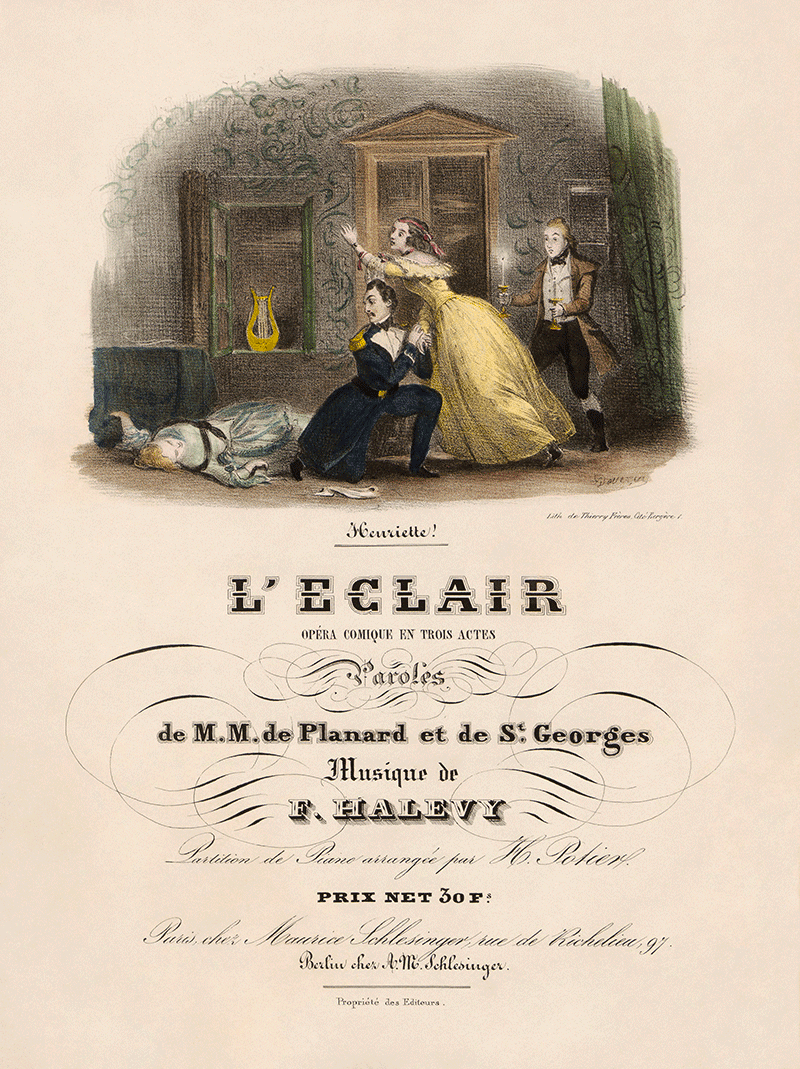
1836 Vocal Score of
Halévy’s L’éclair.
As I have said before, the music behind the voices of opera is unbelievably masterful and beautiful. If you ever want to listen to beautiful orchestra music (in order to relax or otherwise), then the recordings below in this post are great! Also, if you still have to get a feel for the music of opera before understanding the voices, this will definitely inspire you! The skill behind these compositions is incredible, and if you studied things like the sheet music of these compositions, music theory (with any library book or website), counterpoint, and composing with a DAW piece of software, you could write things like this, and create beautiful realistic-sounding recordings with nothing more than a computer and a keyboard! The possibilities are endless!
Secondly, let’s talk about this picture on the top of the post. It is handwritten. Can you believe that? Isn’t it beyond gorgeous? In case you are extra curious, here is how one could start to learn to write like this. The following three resources would give you a great introduction:
1. The book, Palmer’s Penmanship Budget
2. The website blog, The Postman’s Knock
3. The website for the International Association of Master Penman, Engrossers, and Teachers of Handwriting
Also, if you ever want to do this, don’t use Higgin’s Eternal Ink. I tried to get it to work for four months and failed miserably. It is awful. If you aren’t going to make some ink from nature yourself (which I hope to do soon), then something like Sumi Ink would work well.
Lastly, I have included two playlists below of opera recordings without words (either with an orchestra alone or the piano). The first playlist consists of only 27 recordings (my favorites), and if you really want to go crazy, the one below it contains over 11 hours of opera music without words. Make sure to check out these recordings on the first playlist: The Intermezzo from Cavalleria Rusticana; Vienna, City of my Dreams; Ride of the Valkyries; and the William Tell Overture (from nine minutes on-wards)! Have fun!
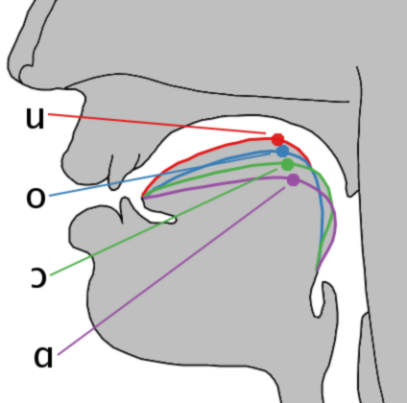
Tongue Positions of
Different Vowels in Phonetics
Am I the only one who thinks that the Italian “u” vowel is extremely important to building a great voice, or have the greatest singers and teachers of all time said the same thing? In this post series, I will discuss some technical things about the “u” vowel, as well as the history of which singers and teachers used it, with exact quotes from the writings of many of them. Then I will ask some questions about how the “u” vowel relates to our modern day vocal training situation. Let’s begin!
The “u” vowel is one of the greatest tools one can use (when paired with the breath) to build great high notes in the voice, and to sing through the register’s break. The “u” vowel is a vowel that favors the head voice, the mechanism that allows the opera voice to function. It is a harder vowel to grow with power. This is what gives it the role of the ultimate head voice vowel. When sung very softly on the breath in the right placement of the voice – something that takes a while to learn – the “u” vowel creates a great voice by making the voice thinner (therefore controllable) and more free. It is a great tool to take out rigidity.
The thing that destroys the “u” vowel’s ability to create a great voice is forced rigidity, in other words, the unrestrained chest voice. The more the chest voice is forced upwards, the more it becomes difficult to summon an “u” vowel tone on the breath. This is because the chest voice blocks the air and forces the upper tones to be wider than they should be. The “u” vowel needs the air and creates thin tones. These methods of training obviously then are opposites. Forcing the chest will destroy your voice, and correctly using the “u” vowel will give you a phenomenal voice.
Being that I cannot teach you to sing well through this post alone (please try to find a great teacher, I listed many in my book A Complete Guide to Opera), I will say one more thing. Almost all singers (especially amateur singers) that I have met today have forced the chest voice upwards. This will create a rigid voice that is either unthrilling, has a break, is forced, or all of the above. One of the first steps to fixing this in the voice is to use the “u” vowel softly -with the breath and the head voice- to take out the forced chest voice, and return the voice to a free and relaxed state where the breath is its only power. Then, the size of the tone is returned to what it should be, a thin throat space that thins as it ascends just like the strings in a piano.
What if I told you that I can give you exact quotes showing that Enrico Caruso, Rosa Ponselle, Lilli Lehmann, Manuel Garcia, Giovanni Sbriglia, Jean De Reske, Alan Lindquest, David Clippinger, and Anthony Frisell -many of the greatest names in opera- all knew the value of the “u” vowel and its ability to build great high notes? That would be pretty incredible wouldn’t it? We’ll talk all about it in part two of this post! See you next time!
The picture of the different tongue positions in the mouth cavity is accredited to this source, https://commons.wikimedia.org/wiki/File:Cardinal_vowel_tongue_position-back.png
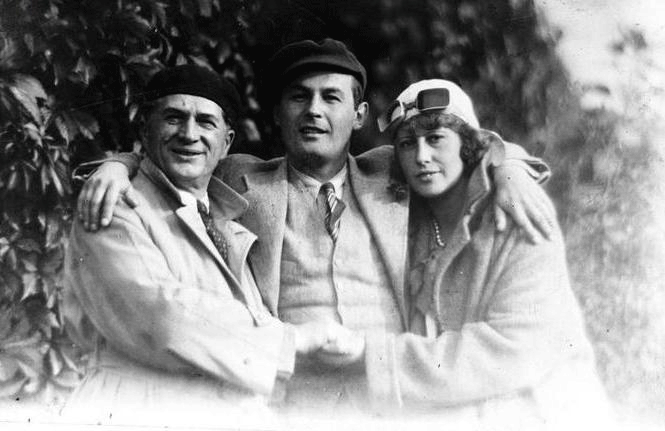
Jan Kiepura
(in the middle)
I have listened to a ton of opera. Some of these arias and recordings are so beautiful that I gasp every time I see them on my computer or iPod before I play them. It is as hard to get tired of an aria as it is to get tired of studying at a masterful painting by say, Frederik Hendrik Kaemmerer. I have included here some of my absolute favorites, in addition to the ones in previous sections.
Open this playlist in spotify, here.
I also snuck in a recording of my favorite tenor alive today! If you are reading this Marcello Giordani, I love your voice! Here, I have a recording of him singing Asil Hereditaire from Guillaume Tell. This is the aria that Gilbet Louis Duprez sang in 1832 when he sang the world’s first powerful high C! My favorite part of this scene starts at 7:40 in this recording.
Also, check out the English songs by Kathryn Grayson, they are far beyond gorgeous!
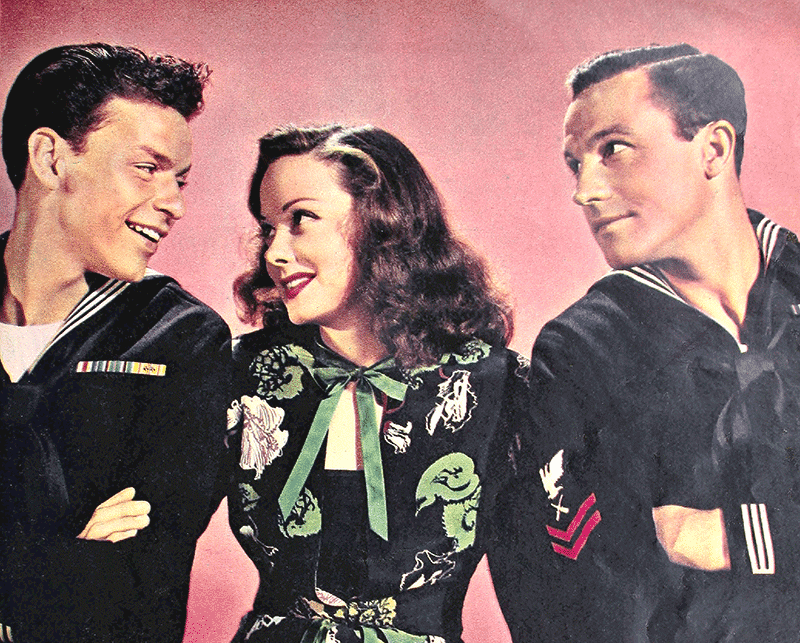
with Frank Sinatra
and Gene Kelly
I laugh every time I hear these recordings. There is something special about putting jokes to music. The recording from L’elisir D’amore is a very great scene. The tenor, Nemorino is in love the soprano, Adina. Nemorino however, is known as the poor town idiot. He buys a bottle of wine thinking that it is a magical love potion, and then he starts confidently flirting with Adina in a lighthearted way, while partially drunk. It is beyond hilarious. Adina says that she will marry Belcore to punish him, but as you will see in the clip, Nemorino only laughs this off as impossible. The recording from The Tales of Hoffmann (in French this is Les Contes D’Hoffmann) uses a butler as the comical character. This butler is tired of working day and night (jour et nuit) and he says that he is going to amaze his employer as a great singing and dancing artist. He tries his hand at both, and then decides to stay a butler. The other recording, I Hate Men, is from a musical but it is sung by an opera singer. I thought I would show you how great opera singers can be expressive, very well pronounced, and funny even in English! I also like the joke she makes in this song about traveling salesmen. We need to shape up guys, so that we aren’t mind-numbed and philandering people who give our wives (and God) reason for grief! Fidelity gives greater happiness! As a side note, I will be writing a whole website on relationships as well. Check the sidebar of this website or drewwhiteddc.com occasionally, and it should be up soon!
Open this playlist in spotify, here.
The exact clips I prepared for the recordings I list here are I Hate Men – 1:07-2:18, Les Contes D’Hoffmann – 0:00-1:38, and L’Elisir D’Amore – 1:25-3:01.
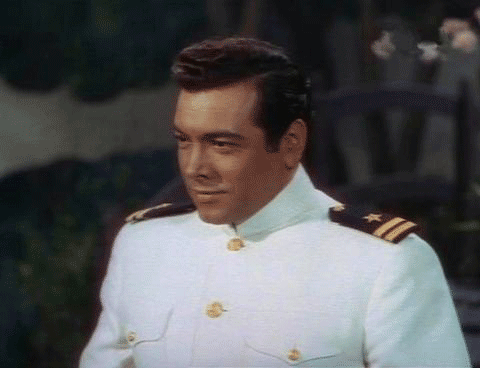
as Pinkerton
Counterpoint (as we have mentioned before) is the study of composing many melodies that meld together into harmonies while also staying distinct. It can be very complicated and impressive. Here is a book on it to give you an idea. In these recordings, you have an entire orchestra and from two voices to as many as six or more! Could you imagine writing something like that? These recordings will show you not only how beautiful the music is, but also how great the composers were. The first duet here is a special treat from a music movie called, The Toast of New Orleans. You get to see here how opera singers sound incredible in English as well! After that I have included some of the most famous multi-voice parts from different operas. Enjoy the masterfully crafted music!
Open this playlist in spotify, here.
The exact clips I prepared for the recordings I list here are They Didn’t Believe Me – 0:18-1:33 (or longer =)), Bella Figlia Dell’Amore – 1:20-2:35, La Traviata -0:47-2:12, and Madame Butterfly – 4:03-5:26.
This is the duet from The Toast of New Orleans that I spoke about. It always shocks me how beautiful the words to songs from the forties and fifties were. We need more elegant songs and duets like this today!
This recording is really awesome. Listen to Björling’s high note in the section I outlined! It is so bright and thrilling! Also, the four parts of this quartet go together very well. It is so masterfully composed. Other critics have pointed out that the reason it is so incredible is because all four of the characters are representing different emotions, the soprano is shocked and dismayed at the tenor’s infidelity, the mezzo soprano is scoffing at the tenor’s attempts to seduce her, and the father of the soprano is tell her that he warned her of the tenor’s philandering nature all along.
This is one of my favorite duets. It is between a soprano and a baritone. The baritone is asking her to leave his son, the man she loves, to save their family name. She cries in despair as he tries to comfort her. His part of the duet is incredibly moving.
After hearing these two singers in the first recording of this section, listen to this one! The style couldn’t be more different. Isn’t it interesting how their technique allows them to accomplish both of these duets? This duet is one of the most famous from Puccini’s very famous Madama Butterfly. This is the love duet of two people who were just married.
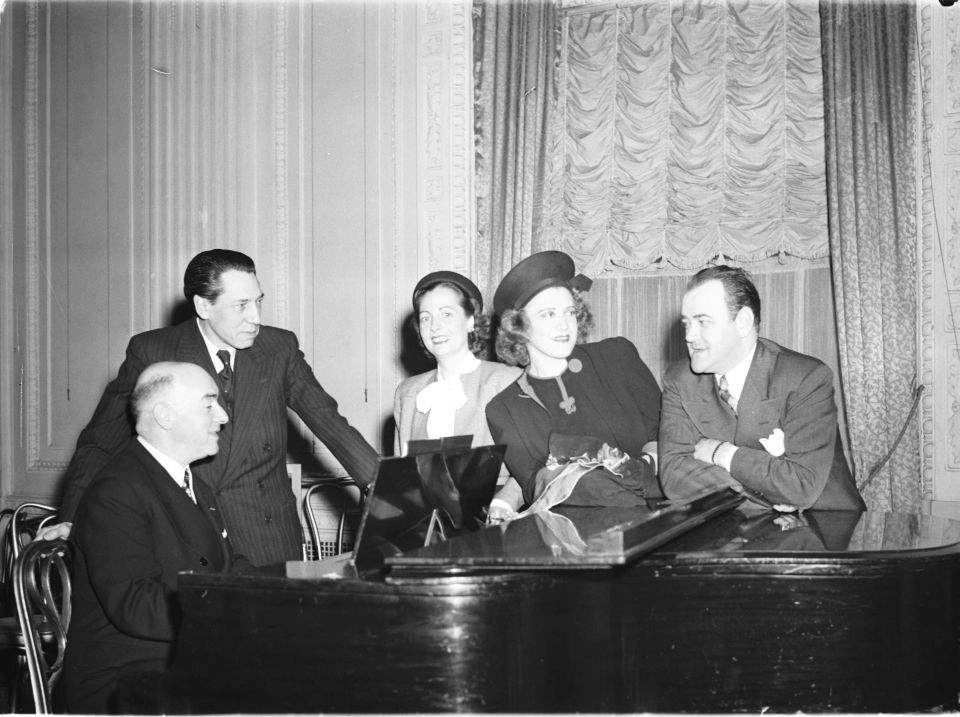
(on the right)
with singers Lily D. Janel,
Rosita Arguello, and Jean Morel
I have been moved to tears only four (or maybe 5) times while listening to opera. The first three were Si, Mi Chiamano Mimi with Victoria De Los Angeles, and Che Gelida Manina with Jussi Björling, and D’Amor Sull’Ali Rosee with Zinka Milanov. The fourth recording is in this section: Con Onor Muore with Victoria De Los Angeles. You will hear that when she sings, “Guarda Ben,” at the end of this recording, it will send chills through your spine. It is sad, dramatic, and extremely moving. It is the last scene of Madama Butterfly where Butterfly sees the child that her and her husband had together for the last time. Her husband is running halfway across the world with her child, and another woman. “Guarda Ben,” means roughly “look well,” in which she is saying to her child, “look well, because you will never see me again.” She then commits suicide. The other dramatic parts after this – respectively – are when Romeo attacks Mercutio for having killed Tybalt, when Luigi tells his lover that he will kill her and make an ornament out of her heart if he ever leaves her, when a clown during a play violently denounces his wife for infidelity being that this play mimics real life, as Don Jose tells Carmen (after she tears his life apart in order to have him), that if he can’t have her, no one will, and when Don Carlo convinces Don Alvaro (a priest) to duel to the death. If you want emotionally exciting music. You have found it.
Open this playlist in spotify, here.
The exact clips I prepared for the recordings I list here are Il Tabarro – 1:59-3:20, Romeo et Juliette – 6:11-7:25, Madama Butterfly – 1:46-2:48, La Forza Del Destino – 5:43-7:43, and Carmen – 7:48-10:12.
Here Luigi -in the middle of an affair – tells his lover that if she ever leaves him, he will kill her and make an ornament out of her heart. Placido does a very good job of rendering the scene. Think you have seen jealousy before?
Raoul Jobin’s high notes here have a crazy resonance to them that is unlike what I have heard from most other singers. Here, he violently denounces Mercutio for having killed Tybalt. One of my friends told me that Raoul Join only had three fingers on one hand. I think he told me that he lost some of them in a war.
This is the recording that made me cry before and then stare at the wall. If you didn’t read about this in the introduction to this post, definitely check it out.
Here, the tenor screams, “un brando (a sword),” as Don Carlo convinces him to duel to the death to avenge his father’s death. This is from my favorite opera.
This is one of the most exciting scenes of the opera. The script (known more often as the libretto) is very well written in this opera. This is the scene where the play and reality converge as a clown is denouncing his wife for infidelity before a crowd that thinks it is only part of the play, not real life. His first sentence is, “No Pagliaccio non son! Se il viso e pallido, e di vergognia e smania di vendetta!” This means, “No, I am not a clown! If my face is white it is from shame and a thirst for vengeance!”
Carmen was a bad woman. She seduced Don Jose to leave everything for her, and once he did, she threw him in the garage and went after another man. He screams for her to go off with him. She refuses, and being that he can’t stand it any longer, he takes her life. I went through tons of recordings, and I found that Gigli renders the high note the best, and that he acts the part very voraciously. However, in the original French, the high note doesn’t fall on Carmen’s name, but rather the word, “Demon.” Don Jose really tells Carmen what he thinks of her. She did some bad things. Although it is funny. She said that those who don’t fall in her hands intrigue her. She couldn’t get me in her hands if she tried! The Bible does say not even to walk down the street of a temptress.
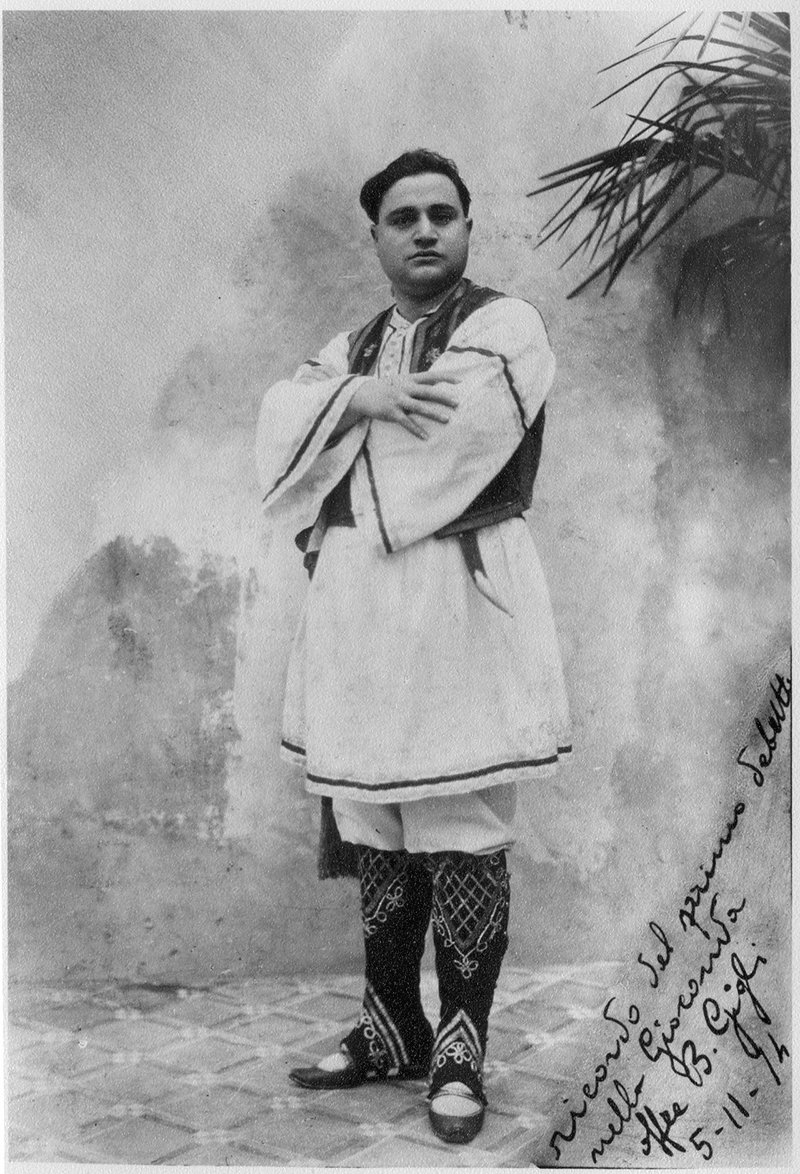
Beniamino Gigli
Open this playlist in spotify, here.
The exact clips I prepared for the recordings I list here are Recondita Armonia – 1:48-3:00, Manon: Il Sogno – 0:41-2:00 (or to the end), O Suave Fanciulla 0:00-1:14, and In Quelle Trine Morbide – 0:48-1:26.
I explained this recording once before in the introduction to this series, but if you missed it, here it is again: This is almost the exact recording that first made me consider loving opera. It is so beautiful and poetic. Originally I was inspired by the melody that Puccini wrote at the end of the aria when Pavarotti sings, “Ah! Il mio solo pensiero sei tu! Tosca sei tu!” The aria is about a painter. When he paints different women, he always ends up adding the features of the woman he loves to the painting. The title, “Recondita Armonia” means roughly “Hidden Harmony” and the music that gracefully moves from high to low and settles in the middle, poetically conveys the thoughts of these two women. The last phrase he sings is translated, “Tosca, my only thought is you.” How is that for poetry?
This is arguably the most beautiful aria that I know of in opera, and here I will try to do it justice in an explanation. In it, Chevalier Des Grieux sings to the woman he loves (Manon) and tells her of his dream for the both of them. Here are the lyrics in the original French (Gigli sings it in Italian), and I will translate some of it below for you (French is so gorgeous, and if you want to hear it in the French I have a recording of it in this section, 3. Diminuendi):
Là-bas… une humble retraite,
Une maisonnette
Toute blanche au fond des bois!
Sous ses tranquilles ombrages
Les clairs et joyeux ruisseaux,
Où se mirent les feuillages,
Chantent avec les oiseaux!
C’est le paradis!… Oh non!
Tout est là triste et morose,
Car il y manque une chose,
Il y faut encore Manon!
A humble retreat,
a small white house in the woods!
It is in the tranquil shade.
There is light and a joyous stream,
where the leaves sing with the birds!
It is paradise! But no…
Everything is sad and morose,
because one thing is missing,
Manon!
This is the poetic moment I talk about most often. Rodolfo and Mimi are singing a duet after having fallen in love. Here are the lyrics and what they mean:
di mite circonfuso alba lunar
in te, vivo ravviso il sogno
ch’io vorrei sempre sognar!
illuminated by the moon,
in you I see the dream I have
always wanted to dream!
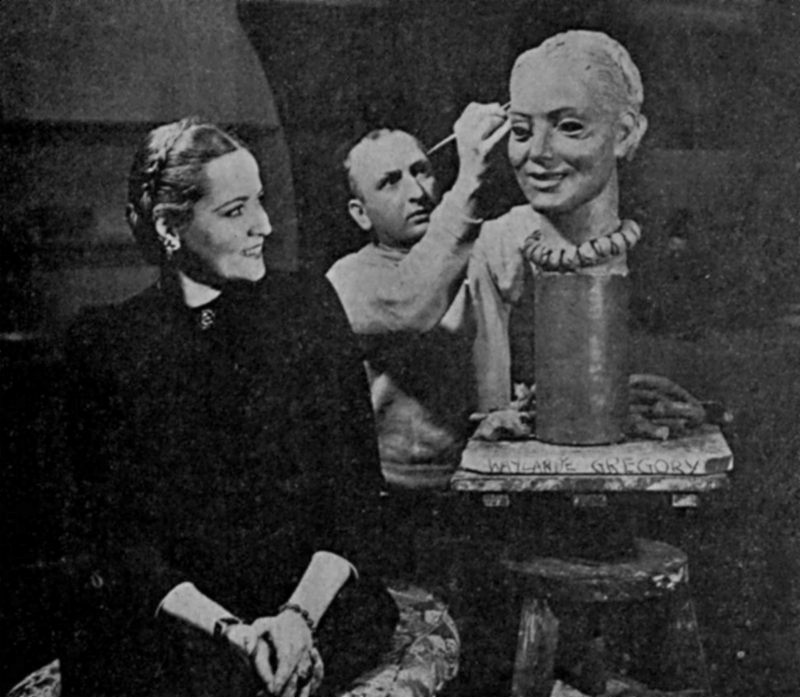
Bidu Sayão
This section is rather self-explanatory. We have spoken much before on how the falsetto/head voice is the correct basis for all voices. Here, you can see the brightness, expressiveness, and extreme beauty of tone that results from this ideal of training.
Open this playlist in spotify, here.
The exact clips I prepared for the recordings I list here are Manon: Monsieur – 1:39-2:39, La Vergine Degli Angeli – 0:46-1:26, Mamma Mia, Che Vo Sape – Whole Song, Ah! Je Ris… – 0:57-1:57, and Tra Voi Belle – 0:48-1:15.
This song is taken straight from the recording used in the MGM movie “That Midnight Kiss” with Mario Lanza and Kathryn Grayson. I highly recommend that you see the movie. It is extremely enjoyable.
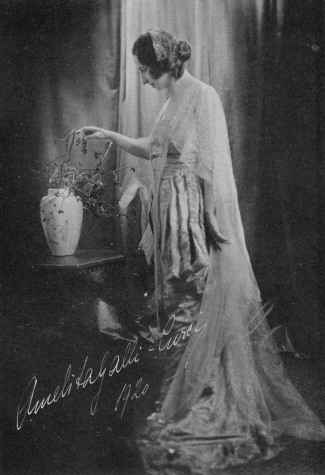
Amelita Galli-Curci
Fast singing can vary from being very entertaining to superhuman. The trills and movements that some sopranos do defy what many could have imagined is possible from the human voice. If you listen especially to the recordings of Una Voce Poco Fa, Sempre Libera, and L’Histoire Amoureuse, you will see exactly what I am talking about. Also, don’t think less of the fast singing from the men either! It is only by getting the bulk of the speaking voice out of the way that one can sing expressively and quickly. Some old teachers said that it took two years to master singing quickly. You are about to see why!
Open this playlist in spotify, here.
The exact clips I prepared for the recordings I list here are Mignon – 3:38-4:39, Una Voce Poco Fa 4:56-5:30, Il Trovatore – 23:21-24:08, Sempre Libera – 0:00-0:40 and 1:56-2:35, C’est l’histoire amourseuse – 2:10-2:38, Di Tu Se Fedele – 2:32-3:07, and La Donna È Mobile – 1:50-2:09.
This recording is unbelievably incredible. That is why I put it first. Listen to the resonance that the upper part of Mimi’s voice gets in this live recording! Her fast notes ending with the high F are stunning. Trying doing this one on karaoke night!
Anna Moffo did this on Italian television in the 60’s. Here is a great collection of other breath-taking arias she sings if you can’t get enough!. She was so gorgeous and talented.
Many people – including myself – think this is the greatest recording of Il Trovatore ever made. This trio is an absolute favorite of many and is extremely popular.
Amelita Galli-Curci is my all-time favorite soprano. She taught herself how to sing after listening to her grandmother and attending La Scala for many years. She said that it took her years to carefully and slowly train the voice without forcing it, and therefore ruining it. Her recordings here are so miraculous that they defy words. It is too bad that the recording quality was not completely like today (don’t be scared away by this)! If it was, I think people would understand even more how unbelievable she was. Listen to how she hits each note perfectly (and in many cases lightning fast) as if she consistently throws a bulls-eye in a dart board. She doesn’t scoop or slide like other singers!
Jussi Björling was capable of taking an aria I really didn’t care for initially and causing me to fall in love with it. Listen to the last phrase of this aria leading up to the high note and after it. He doesn’t take a breath!
It is very funny. In an interview, Tucker said that many of the tenors at the Metropolitan Opera in the 60’s asked him how he sang the quick ending to this opera so well. He said being Jewish helped, because he sang so many songs like it in the synagogue! If you haven’t heard one of my favorite Jewish songs by Tucker, check it out in part 12 of this series, My Favorites!




